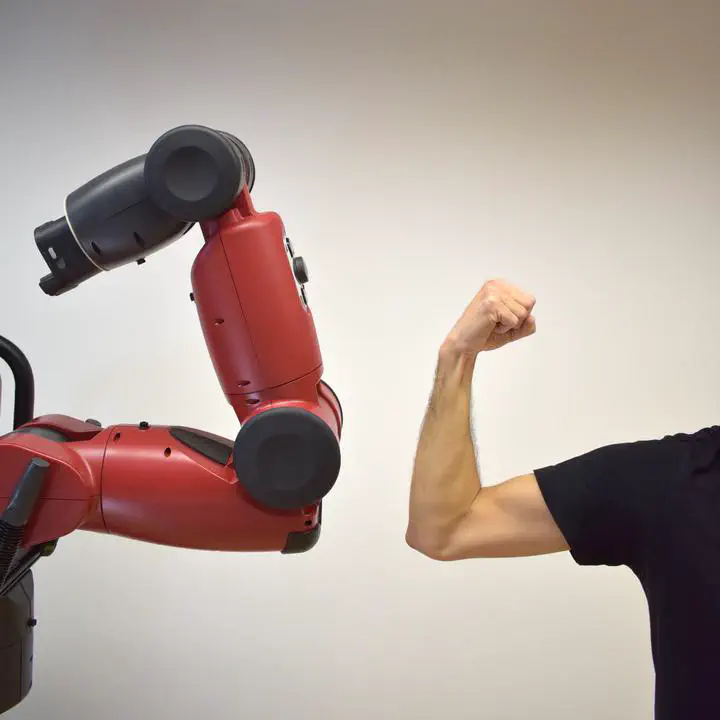A neuromechanics solution for adjustable robot compliance and accuracy

Abstract
Robots have to adjust their motor behavior to changing environments and variable task requirements to successfully operate in the real world and physically interact with humans. Thus, robotics strives to enable a broad spectrum of adjustable motor behavior, aiming to mimic the human ability to function in unstructured scenarios. In humans, motor behavior arises from the integrative action of the central nervous system and body biomechanics; motion must be understood from a neuromechanics perspective. Nervous regions such as the cerebellum facilitate learning, adaptation, and coordination of our motor responses, ultimately driven by muscle activation. Muscles, in turn, self-stabilize motion through mechanical viscoelasticity. In addition, the agonist-antagonist arrangement of muscles surrounding joints enables cocontraction, which can be regulated to enhance motion accuracy and adapt joint stiffness, thereby providing impedance modulation and broadening the motor repertoire. Here, we propose a control solution that harnesses neuromechanics to enable adjustable robot motor behavior. Our solution integrates a muscle model that replicates mechanical viscoelasticity and cocontraction together with a cerebellar network providing motor adaptation. The resulting cerebello-muscular controller drives the robot through torque commands in a feedback control loop. Changes in cocontraction modify the muscle dynamics, and the cerebellum provides motor adaptation without relying on prior analytical solutions, driving the robot in different motor tasks, including payload perturbations and operation across unknown terrains. Experimental results show that cocontraction modulates robot stiffness, performance accuracy, and robustness against external perturbations. Through cocontraction modulation, our cerebello-muscular torque controller enables a broad spectrum of robot motor behavior. You can access the full manuscript here.